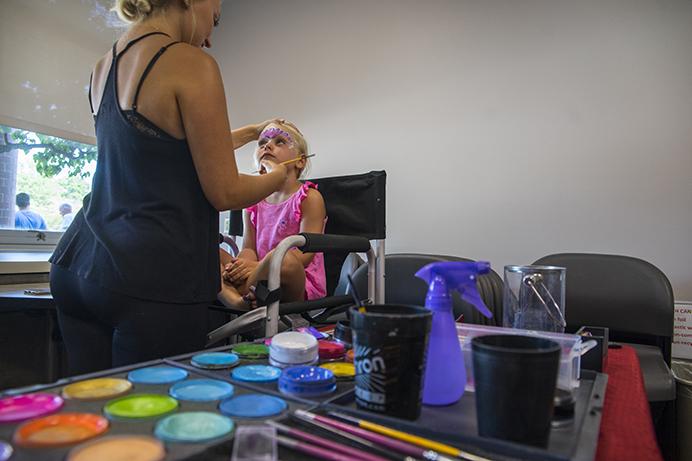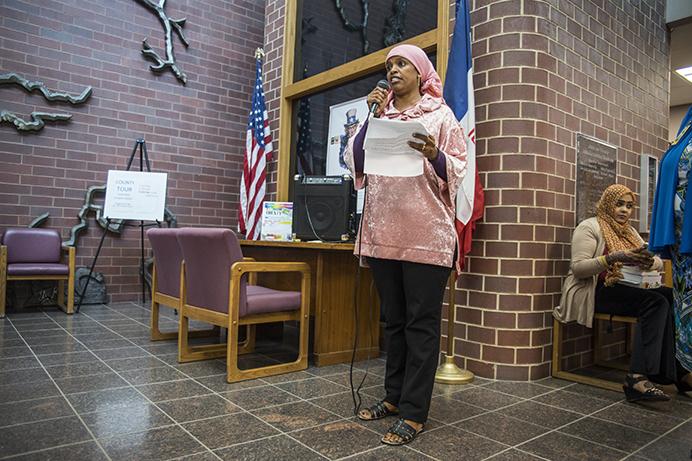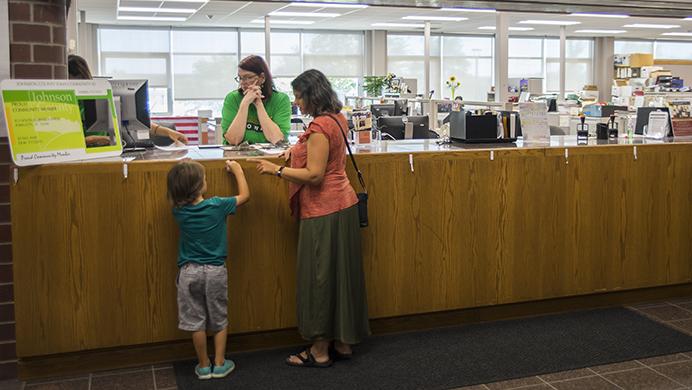Johnson County community members and officials note the importance of the community ID program.
By Hannah Soyer
Cotton candy and face painting were part of Monday afternoon festivities celebrating a path forward for vulnerable residents, and Johnson County officials have tried to make them feel like part of the community.
Local officials and members of the community joined to celebrate the benefits of the community ID at the Johnson County Community ID Two-Year Anniversary Party on Monday at the County Administration Building, 913 S. Dubuque St.
At least 19 new community IDs were issued at the event, adding to the more than 1,000 IDs that have been issued in the past two years, according to the Johnson County Auditor’s Office.
One of those who has benefited from the program is Marcela Hurtado, the vice president for the Eastern Iowa Center for Worker Justice. She said she played an instrumental role in putting the community ID program together since its inception.
Hurtado has lived in Iowa City for 13 years but is originally from Mexico. She said that one of the barriers she has faced before getting a community ID was being unable to pick up certain medications that had restricted ingredients. The pharmacy would not accept her ID from Mexico but it takes her community ID.

“Recently, I was at a training in Chicago, and the hotel asked us to present an ID, and I showed them my community ID, and it wasn’t any problem,” she said.
Hurtado’s story is not singular. Johnson County Supervisor Janelle Rettig said the community ID has given people many opportunities they would not have had before the program’s existence.
“For many people, the community ID means a path — a path to jobs, a path to library cards, a path to feeling comfortable talking to law enforcement,” she said.
RELATED: Community IDs aid all in Johnson County
Johnson County Recorder Kim Painter noted that there are various barriers that can keep someone from being able to obtain a state-issued ID or driver’s license, such as not having proper documentation or not being able to financially afford it. The community ID enables people to perform functions that other community members are able to do with the help of an ID, she said.
“[Not having the right ID] could keep them from opening a bank account; it could keep them from reporting a theft of their wages in which they had no bank to put the wages,” she said, which then can create a “cycle of vulnerability” in which one problem can lead to another. “The goal of the community ID program is to have people more securely woven into the fabric of our community.”

The Center for Worker Justice began thinking about the community ID program around five years ago, said Mazahir Salih, the group’s president.
“Some people think that this program only benefits the undocumented, but that is not true,” she said. “It also benefits people who have given up driving for one reason or another, victims of domestic violence, and people who have lost their documentation due to natural disasters or because they were fleeing their country.”
It is important for more people to get community IDs and to then use them to feel a sense of belonging in their community, Hurtado said. Rettig, Painter, and Salih agree.
“It’s important for people to have a sense that they belong here because this is where they live, this is their home,” Salih said.
The community ID program is the first in Iowa and one of the first in the Midwest, Salih said. Rettig hopes that the program grows beyond Johnson County to help all Iowans.
“We had hopes it would spread across the state, and we still have hope that it will,” Rettig said. “It wasn’t a one city problem — it’s a problem across our whole community, our whole state, and our whole country. But we can’t fix that problem; we can only fix the problem here at home.”



